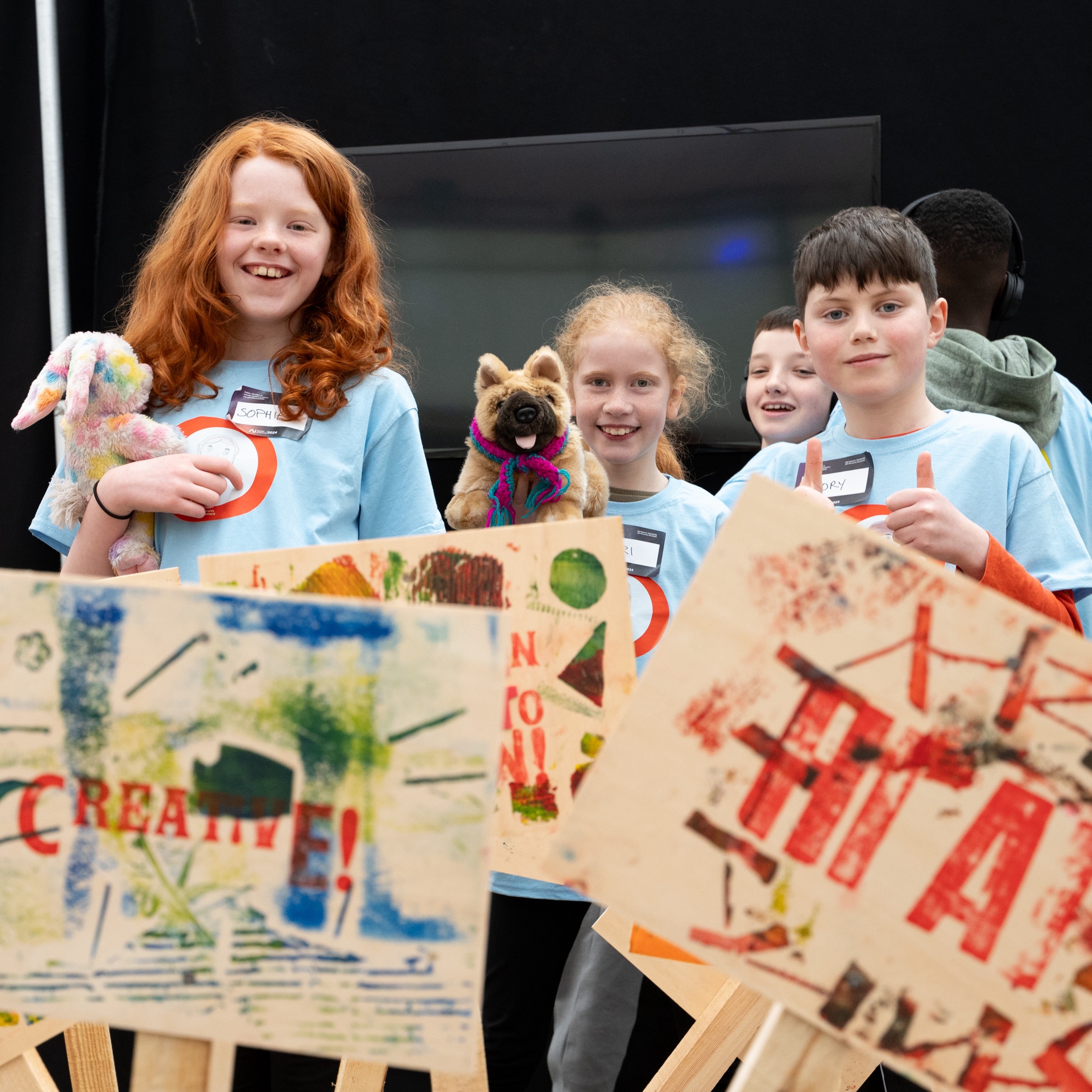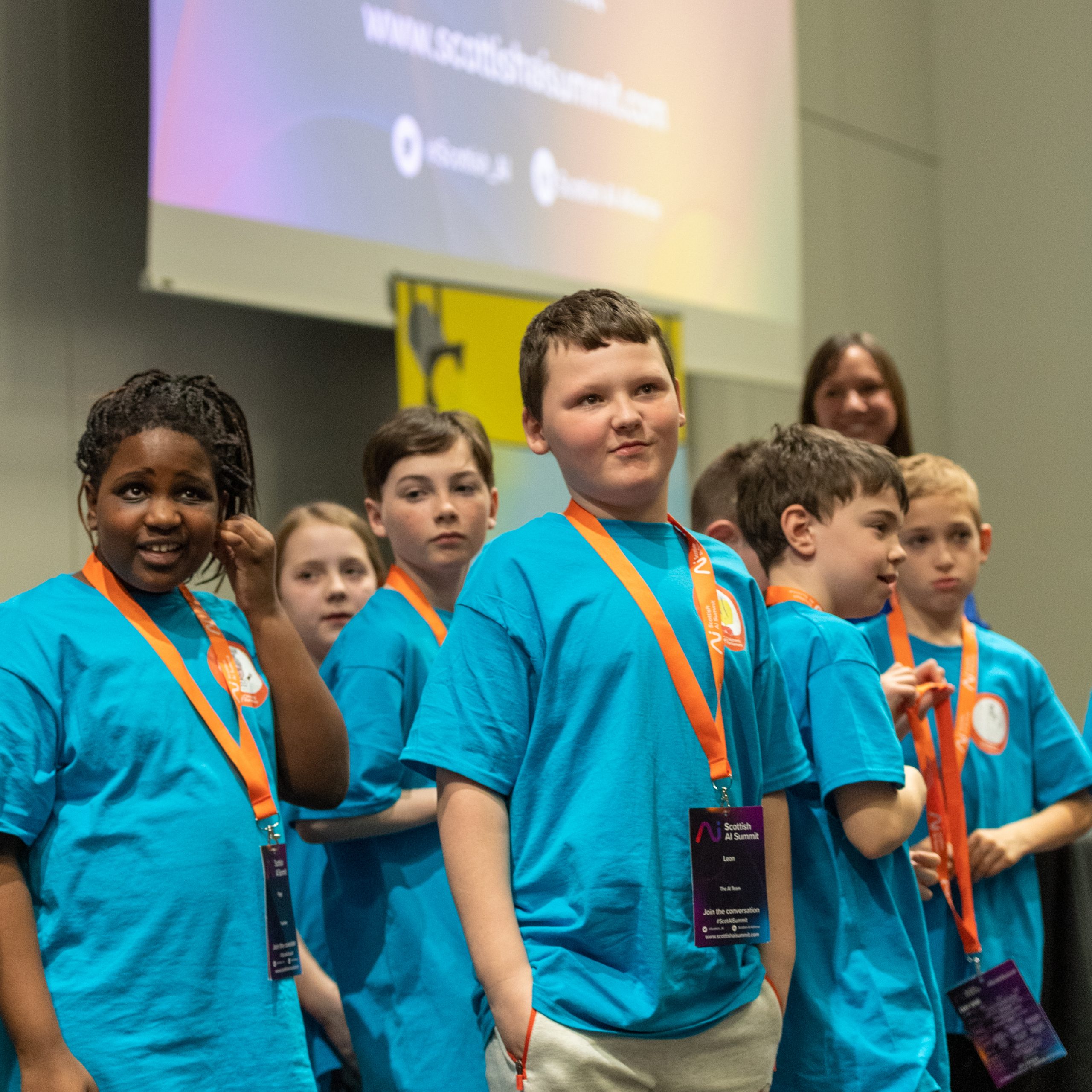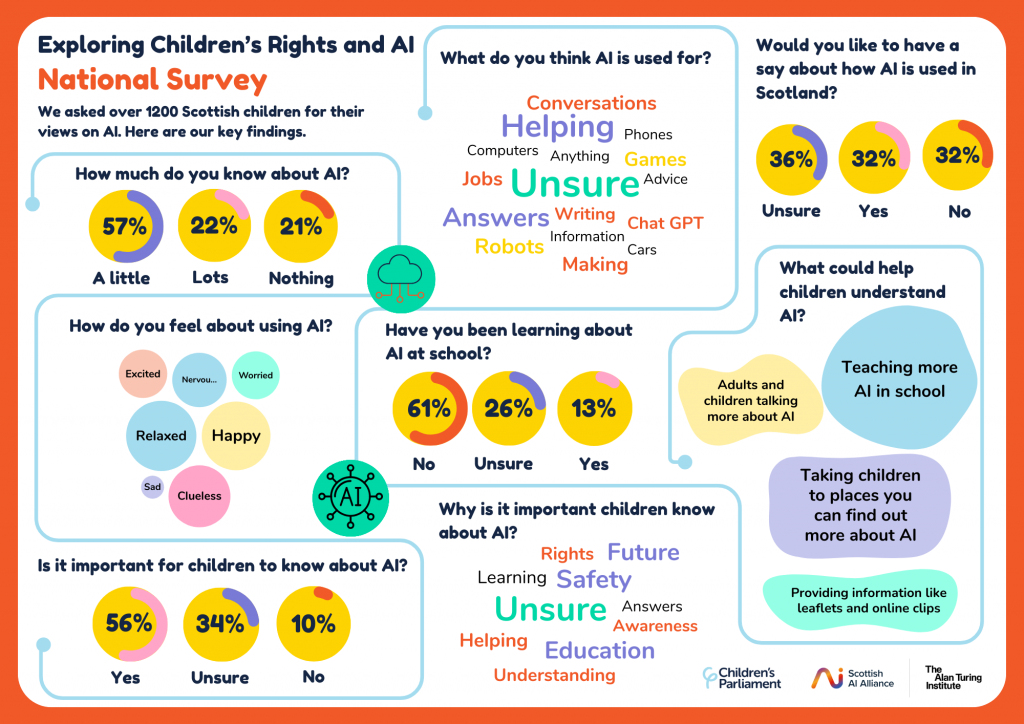National Survey
Over 1,200 children living in Scotland completed a digital survey in June 2023 which explored their views and ideas on AI, and its use and development in relation to their human rights. Each survey was completed anonymously by children aged eight-14 years old, supported by school staff but independently filled out by children. The survey and accompanying facilitation instructions for teachers and other supporting adults were designed and produced by Children’s Parliament. Have a look at some of the key results in the charts and word maps shown on the graphic.
Children could express their views and ideas in more depth through two open-ended questions on the survey if they wished; the answers to those questions will form a part of the evidence for the project’s next report. Another national survey, aimed at understanding Scottish children’s priorities when it comes to AI, will be launched in 2024.
Findings
The survey results show a clear need for improved education around AI for children. 57% of children said they know only a bit about AI, and 21% said they knew nothing at all. Combined with the fact that 61% of children also told us that they don’t learn about AI in school, this shows a definite gap in the curriculum on the topic for primary-school aged children and beyond.
56% said that it is important for children, including younger children, to know about AI, and that the best ways for them to learn about it are through ‘teaching more in school’, ‘taking [them] to places where [they] can find out about it’, and ‘adults talking more with [them] about AI.’
A general feeling of uncertainty around AI was also reflected in children’s answers to the question ‘would you like to have a say about how AI is used in Scotland?’, with 36% responding ‘unsure’ and only 32% responding ‘yes’. Meanwhile, a majority of children reported knowing ‘a lot’ about their rights but only ‘a little’ about AI. This shows that greater access to education on AI might support children to be rights-bearers and make informed decisions when invited to contribute their views on AI use and development.
While feelings such as ‘nervous, ‘worried’, and ‘sad’ were commonly expressed in relation to AI, so too were ‘happy’, ‘excited’, and ‘relaxed’, and children frequently expressed the view that AI is used for helping people. Children let us know that it is important for them to know and learn about AI because it helps them feel safe and will help them prepare better for their futures.




